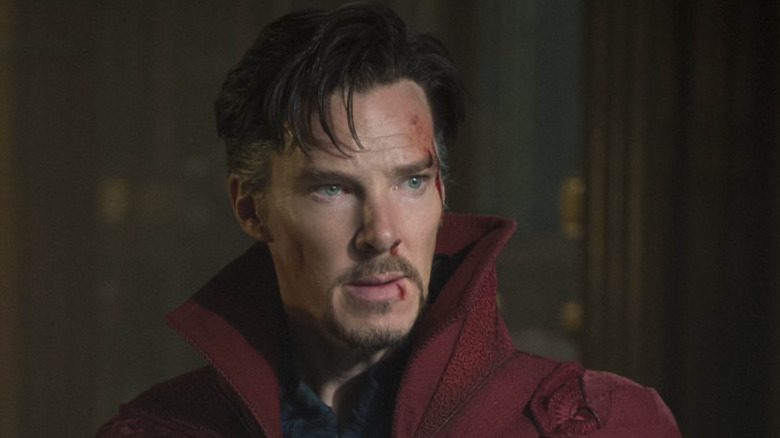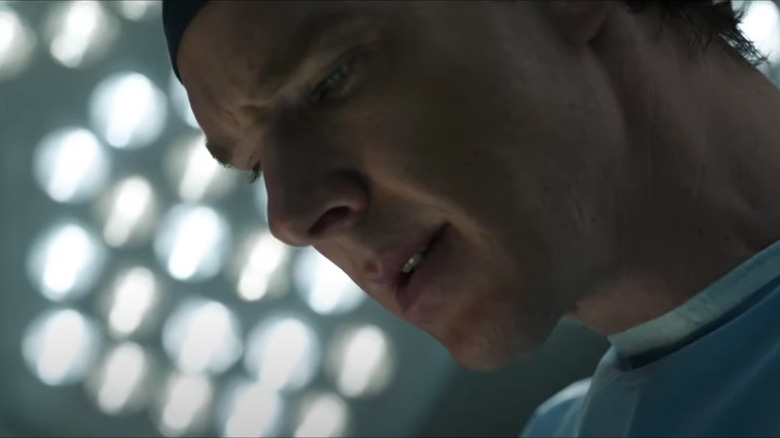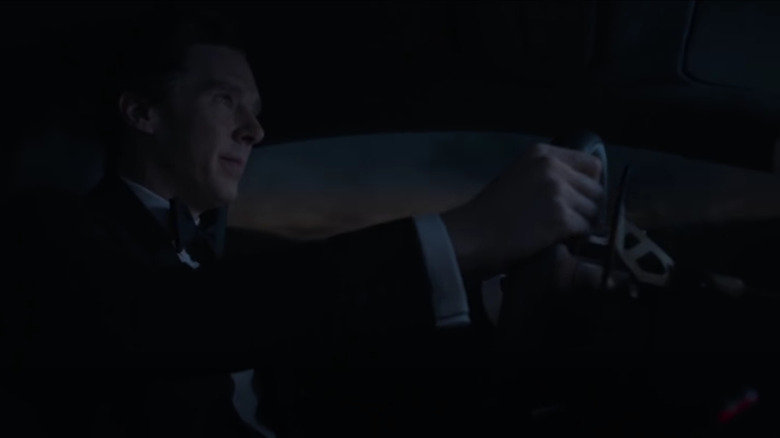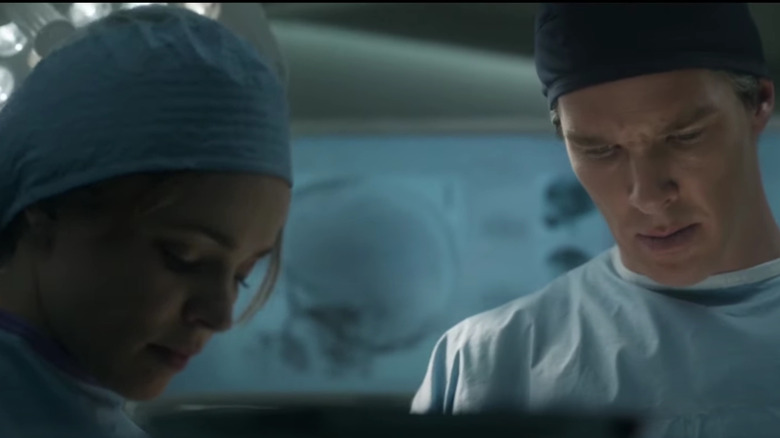Why The Medical Scenes In Doctor Strange Make No Sense
There are plenty of things to love about "Doctor Strange." The character's first foray into the Marvel Cinematic Universe in 2016 was a dazzling work of psychedelic special effects, giving us one of the most clever climaxes in the MCU. The wizard was a welcome addition to the universe, providing an element of magic that has carried through into films like "Shang-Chi and the Legend of The Ten Rings," and the Disney+ series "Wandavision" and "Loki." It will also continue to be built upon in the upcoming sequel "Doctor Strange in The Multiverse of Madness."
No movie is without its flaws, though, and there are some moments in "Doctor Strange" that make little sense when you stop to think about them. Benedict Cumberbatch shows off his range in this film and his sheer charisma goes a long way toward papering over some of the more obvious cracks in the story, but they're still there if you're looking closely.
For instance, in a movie with a world-renowned surgeon as its protagonist, you'd hope the medical scenes would at least be accurate. Under examination, though, there are a few puzzling elements at play in the scenes where Doctor Strange is, you know, doing doctor stuff.
Masks aren't optional, Stephen!
In a scene near the beginning of the film, Doctor Strange is shown operating on a patient...with no surgical mask in sight. After nearly two years of COVID-19, we understand the importance of masks for the purposes of hygiene more than ever. But while masking can be somewhat optional for laypeople these days, it is never okay to perform surgery without one — and that was the case long before the pandemic.
Most likely, the moviemakers felt the audience needed to see the character's face for Cumberbatch's performance to work, even if that choice sacrificed a bit of medical realism. Still, we are talking about a man who is ostensibly among the best in the world at what he does, and "Doctor Strange" goes to great lengths showing its audience how talented and renowned he is. That a doctor of his caliber would ever fail to remember something as basic as a surgical mask, and that none of the other doctors around him would point it out, is quite odd.
Patients won't appreciate having their X-rays examined while you're driving, Doc
Doctor Strange's success in the field has led him to a lavish lifestyle, complete with a Manhattan penthouse and a supercar. That car has some, shall we say non-standard features, one of which is the baffling ability to display X-ray results from Strange's patients. It is during an examination of one such result, conducted while speeding through a winding cliffside road, that the good doctor gets into the near-fatal accident, leaving him without the use of his hands.
Aside from the obvious dangers of distracted driving and reckless speeding, it is puzzling that Strange chooses to look at important medical results while on the move. While not necessarily a HIPAA violation, it is hard to imagine that Strange's patients would appreciate such scant attention being paid to his urgent medical situation.
The purpose of the scene is to drive home how cocky and arrogant the doctor has become. He's so convinced of his superiority that he barely pays attention to his patients. Later in the film, he learns some measure of humility from the wizards at Kamar-Taj, so it's important for the film to establish the character's deepest flaw early on.
There's this little thing called the Hippocratic Oath
Every doctor must declare their intention to "do no harm" before being given a medical license through the recitation of the Hippocratic oath. The practice dates back to ancient times, with the oldest copies of the oath originating in the third-century C.E. In taking the oath, a doctor promises never to inflict deliberate or preventable harm on any patient, and that includes withholding care.
Doctor Stephen Strange appears to display chilling callousness toward the foundational tenets of his profession. During an early scene in "Doctor Strange," he saves a patient from a gunshot wound after a fellow doctor has declared the patient dead and scolds the other doctor for giving up so easily. When called out for his harsh words by his colleague, Christine, Stephen tells her, "I didn't need to save his patient." Given that he knew the other doctor was bungling the treatment, it seems as if Strange was compelled to intervene by his commitment to the Hippocratic oath. To claim otherwise is simply heartless.



